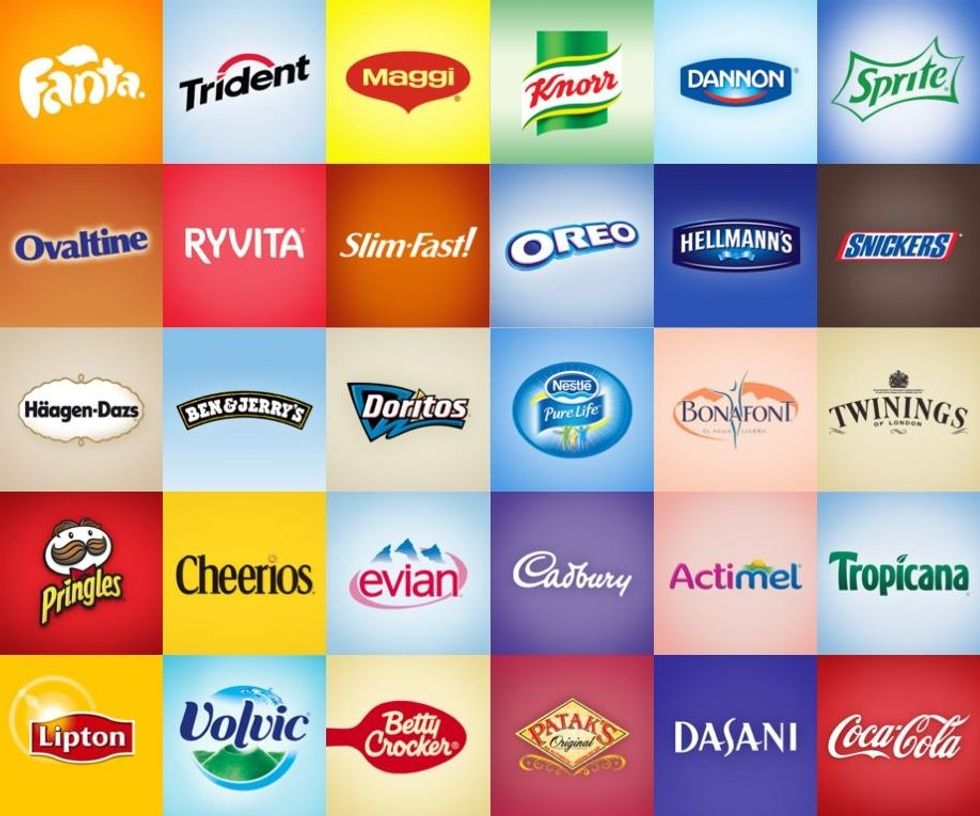The world's largest food and beverage companies may be profitable, but according to Oxfam International their practices are helping to destroy not only the natural resources that support a global food system but the lives of the people they depend on most: their employees and their customers.
In a new effort called Behind the Brand, part of their ongoing GROW campaign to fix the broken food system, Oxfam has singled out the ten largest food processing companies--Associated British Foods (ABF), Coca Cola, Danone, General Mills, Kellogg's, Mars, Mondelez, Nestle, Pepsico and Unilever--to make a singular statement about the failure of these behemoths to fulfill their social and environmental responsibilities.
According to Oxfam, these "Big 10"--that together generate $1 billion-a-day in profit--are failing millions of people in developing countries who supply land, labor, water and commodities needed to make their products.
"It's time these companies take more responsibility for their immense influence on poor people's lives," said Jeremy Hobbs, Executive Director for Oxfam International. "Eighty percent of the world's hungry people work in food production and these companies employ millions of people in developing countries to grow their ingredients. They control hundreds of the world's most popular brands and have the economic, social and political clout to make a real and lasting difference to the world's poor and hungry."
As The Guardianreports:
The charity's Behind the Brands report compiled a scorecard, rating the "big 10" food companies in seven categories: the transparency of their supply chains and operations, how they ensure the rights of workers, how they protect women's rights, the management of water and land use, their policies to reduce the impacts of climate change and how they ensure the rights of the farmers who grow their ingredients.
The company with the lowest score - just 13 out of 70 - was ABF. It scored just one mark out of 10 in its treatment of land, women and climate change, while the highest scores it managed to achieve was three out of 10, in relation to workers and transparency.
In joint second-lowest place were Kellogg's and General Mills, which owns Old El Paso, Haagen-Dazs and Nature Valley, with both scoring 16 out of 70.
In the campaign's first targeted action, Oxfam will target Nestle, Mondelez and Mars for their failure to address inequality faced by women who grow cocoa for their chocolate products. As part of that effort, the group released a series with first-hand accounts which explore the inequality that women cocoa growers face. And the campaign is urging people to use their own voices and social networks to speak out against the food giants.
"No brand is too big to listen to its customers," said Hobbs. "If enough people urge the big food companies to do what is right, they have no choice but to listen. By contacting companies on Twitter and Facebook, or signing a petition to their CEO, consumers can do their part to help bring lasting change in our broken food system by showing companies their customers expect them to operate responsibly."
The 'Behind the Brands' campaign also released this list of ways that the "Big 10" fail to meet their commitments:
- While some of the "Big 10" have publicly committed to women's rights, none have committed to eliminating discrimination against women throughout their supply chains.
- None of the companies have adequate policies to protect local communities from land and water grabs, despite all of them sourcing commodities plagued by land rights violations, such as palm oil, soy and sugar. Not one company has declared 'zero tolerance' against land grabs in their supply chains.
- All ten companies are overly secretive about their agricultural supply chains, making their claims of 'sustainability' and 'social responsibility' difficult to verify. Nestle and Unilever are most open about the countries they source from, but no company is providing enough information about their suppliers.
- Companies are generally increasing their overall water efficiency but most have failed to put policies in place to limit their impact on local water sources. Only Pepsi has publicly recognized water as a human right and committed to consult local communities. Nestle has developed guidelines for its suppliers to manage water and was ranked top for policies on water.
- All of the companies have taken steps to reduce direct emissions, but only five - Mondelez, Danone, Unilever, Coca-Cola and Mars - publicly report on agricultural emissions associated with their products. Unilever alone has committed to halve its greenhouse gas footprint by 2020. None have yet developed policies to help farmers in their supply chains to build resilience to climate change.
- None have publicly committed to pay a fair price to farmers or fair business arrangements with them across all agricultural operations. Only Unilever - which is top-ranked for its dealings with small-scale farmers - has specific supplier guidelines to address some key issues faced by farmers.
___________________________________________

